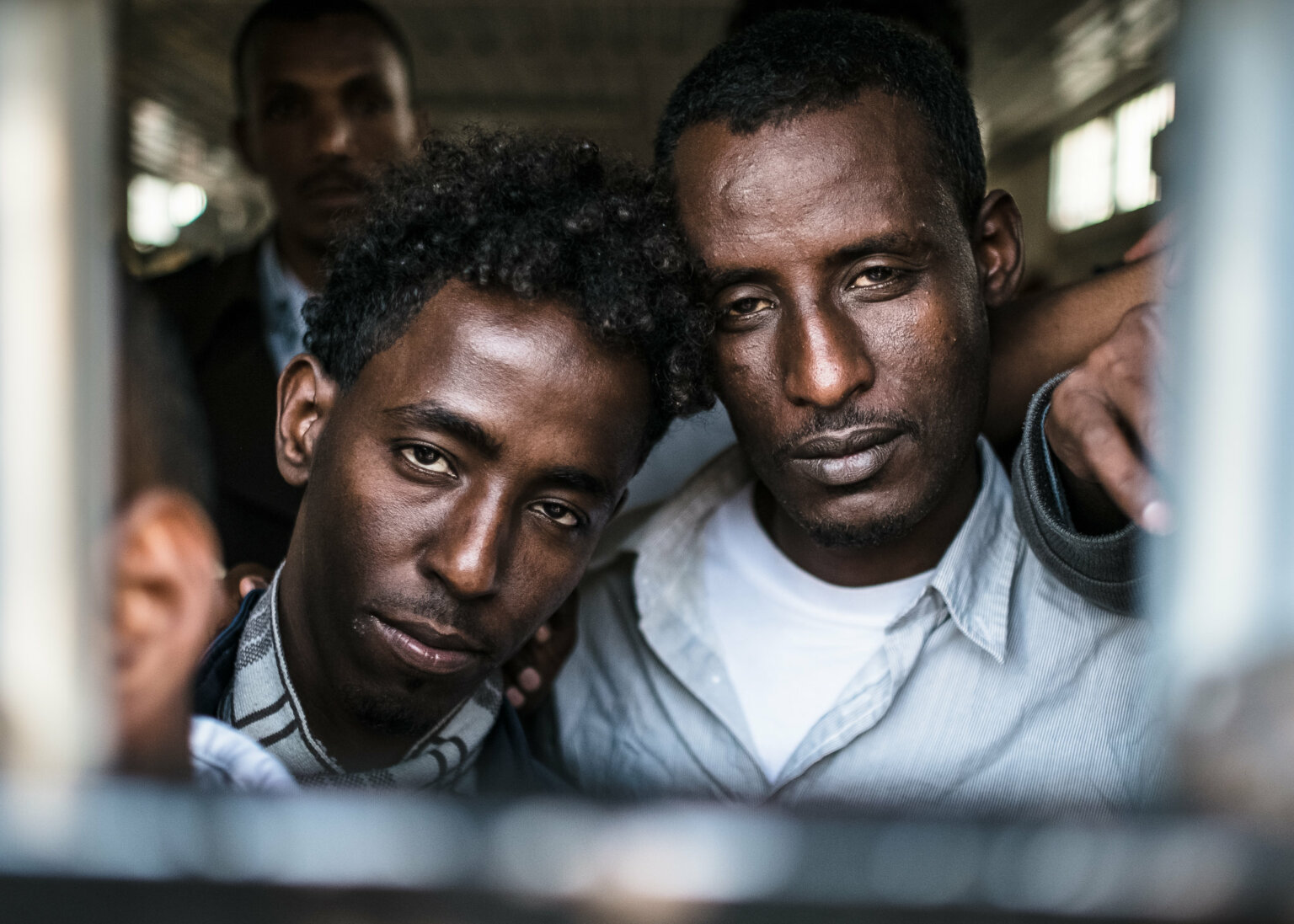- About
- Topics
- Picks
- Audio
- Story
- In-Depth
- Opinion
- News
- Donate
- Signup for our newsletterOur Editors' Best Picks.Send
Read, Debate: Engage.
Ciham Ali Abdu, the daughter of former Eritrean information Minister, was arrested in 2012 as she tried to flee the country into Sudan from where she had hoped to start the journey of reconnecting with her father who had earlier sought asylum in Australia after he fell out with President Isaias Afwerki.
Paulos Eyasu, Isaac Mogos and Negede Teklemariam members of the Jehovah Witness faith were arrested over 25 years ago for objecting to military service that goes against their religion.
Former finance Minister Berhane Abrehe disappeared in 2018 after he was kidnapped by security personnel following publication of a book that was critical of Afwerki's administration and calling on Eritreans to fight for democracy.
These individuals are the face of the thinning democracy and autocratic regime in Eritrea where thousands of political prisoners and prisoners of conscience have been held incommunicado and without trial for airing dissenting opinions in what Amnesty International has dubbed an "infrastructure of total repression."
The North Eastern Africa nation has become the poster child for modern day totalitarianism with conditions so dire that up to 15 per cent of the population has been reported to have fled to neighbouring Ethiopia or Sudan for refuge. From independent journalists, human rights defenders and churches perceived to be opposed to President Afwerki i's regime, civil society movements and basic rights are unheard of which has led to the country being christened the North Korea of Africa.
In a nation with a population of about six million people, there are an estimated 10,000 political prisoners and prisoners of conscience held in hundreds of public and secret prisons under the worst conditions ever. Reports suggest that there are no toilets in these prisons and prisoners relieve themselves in the open. They also sleep in turns because the prisons are overcrowded and the floors where they sleep cannot accommodate everyone. Such desperation, combined with incessant torture has led to prisoners committing suicide. Worse still family members have lived in anguish for years not being allowed access to the prisoners and not sure whether their family members are still alive.
The UN Special Rapporteur on the situation of human rights in Eritrea has consistently complained about Eritrean government’s attempts to frustrate her fact-finding missions. Yet the situation continues to spiral out of control.
Youth and children, who are the bedrock of every country’s future, continue to flee Eritrea in droves. Before the Covid-19-induced travel restrictions, more than 20 per cent of those who were fleeing the country every month were unaccompanied children who also form 40 per cent of all refugees in Ethiopian camps. They have given up on their country. Which is why the world should, now more than ever, rise to the plight of ordinary Eritreans who have normalized detention without trial and dictatorship. Eritrea is a member of the African Union and the United Nations Human Rights Council. It cannot be business as usual. These institutions, even as they explore all diplomatic options to address the situation in Eritrea, must now pile more pressure on Afwerki's administration to release all political prisoners without conditions as a first step to restoring democracy and rule of law. They owe that to the thousands of distressed Eritrean families who have nowhere else to turn for help.
Image by Belinda Cave
